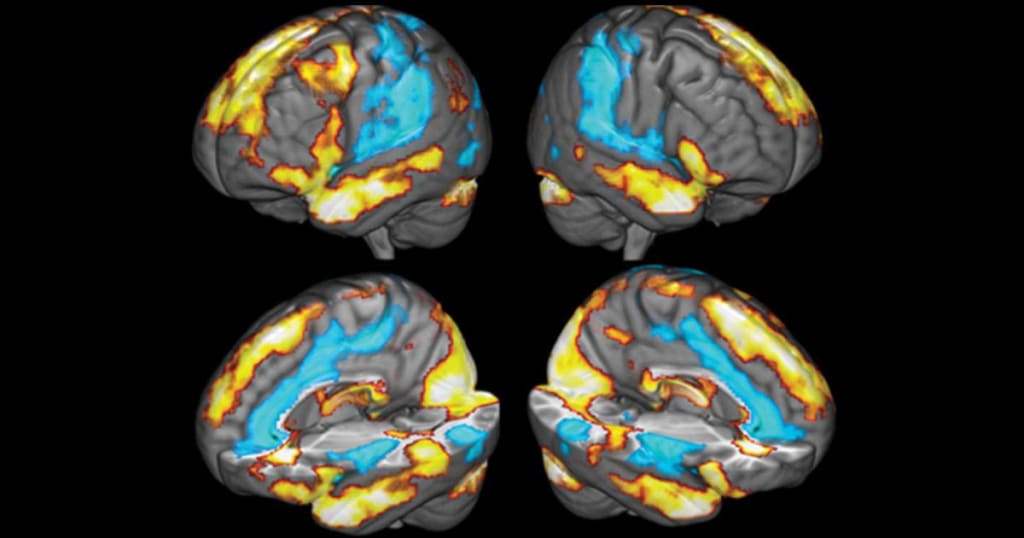The Science of Gratitude: How Thankfulness Rewires Your Brain
How often do you think you say "thank you?"

Gratitude is a powerful emotion that goes beyond simple appreciation. Did you know that expressing gratitude has the potential to rewire your brain and positively impact your overall well-being? In this article, we will explore the science of gratitude and delve into how practicing thankfulness can bring about remarkable changes in your brain and life. Get ready to discover the transformative effects of gratitude and its profound impact on your mental and emotional well-being.
The Neuroscience of Gratitude: Research has shown that expressing gratitude activates specific regions of the brain associated with reward, empathy, and social bonding. When we feel grateful, our brain releases dopamine and serotonin, neurotransmitters that contribute to feelings of happiness and well-being. Real-life examples highlight how practicing gratitude rewires the brain, leading to increased positive emotions and overall life satisfaction.
Improved Mental Health and Resilience: Regularly expressing gratitude has been linked to improved mental health and increased resilience. It can reduce symptoms of depression, anxiety, and stress. Real-life examples demonstrate how individuals who incorporate gratitude into their daily lives experience enhanced mental well-being and are better equipped to navigate challenging situations.
Enhanced Relationships and Social Connections: Gratitude strengthens relationships and fosters social connections. Expressing appreciation towards others deepens bonds, promotes empathy, and creates a positive feedback loop of gratitude within social networks. Real-life examples showcase how gratitude improves relationships, creates a supportive environment, and enhances overall social well-being.
Increased Happiness and Life Satisfaction: Gratitude has a direct impact on our overall happiness and life satisfaction. Studies have shown that individuals who practice gratitude regularly experience higher levels of subjective well-being. Real-life examples illustrate how cultivating gratitude leads to a more positive outlook, increased contentment, and a greater sense of fulfillment in life.
Stress Reduction and Improved Physical Health: Gratitude has a profound effect on our physical health. It reduces stress levels by activating the relaxation response in the body, leading to a cascade of physiological benefits. Studies have also linked gratitude to improved sleep, lower blood pressure, and a stronger immune system. Real-life examples highlight how practicing gratitude contributes to better overall physical health.
Cultivating a Gratitude Practice: Incorporating gratitude into your daily life is simple and rewarding. Start by keeping a gratitude journal, where you write down things you are grateful for each day. Practice mindfulness and intentionally focus on the present moment to appreciate the small joys in life. Real-life examples demonstrate different gratitude practices and their positive impact.
Enhancing Self-Reflection and Personal Growth: Gratitude encourages self-reflection and personal growth. We will explore how gratitude helps individuals gain perspective, appreciate personal strengths, and embrace growth opportunities. Real-life stories will showcase how practicing gratitude has empowered individuals to overcome challenges, embrace change, and continuously evolve.
Gratitude in Challenging Times: Gratitude is especially powerful during challenging times. It helps shift our perspective, find silver linings, and develop resilience. Real-life examples show how individuals facing adversity have used gratitude to find strength, maintain optimism, and navigate through difficult circumstances.
The Ripple Effect of Gratitude: Gratitude has a ripple effect that extends beyond individual well-being. We will explore how expressing gratitude can positively influence others, create a more harmonious environment, and foster a sense of community. Real-life stories will highlight the profound impact gratitude can have on individuals, relationships, and society as a whole.
The science of gratitude reveals its profound impact on the brain and overall well-being. By cultivating a gratitude practice, you can rewire your brain to experience increased happiness, improved mental health, enhanced relationships, reduced stress, and better physical health. Real-life examples serve as inspiration, highlighting the transformative effects of gratitude. So, start practicing gratitude today and witness the positive changes it brings to your life.





Comments
There are no comments for this story
Be the first to respond and start the conversation.